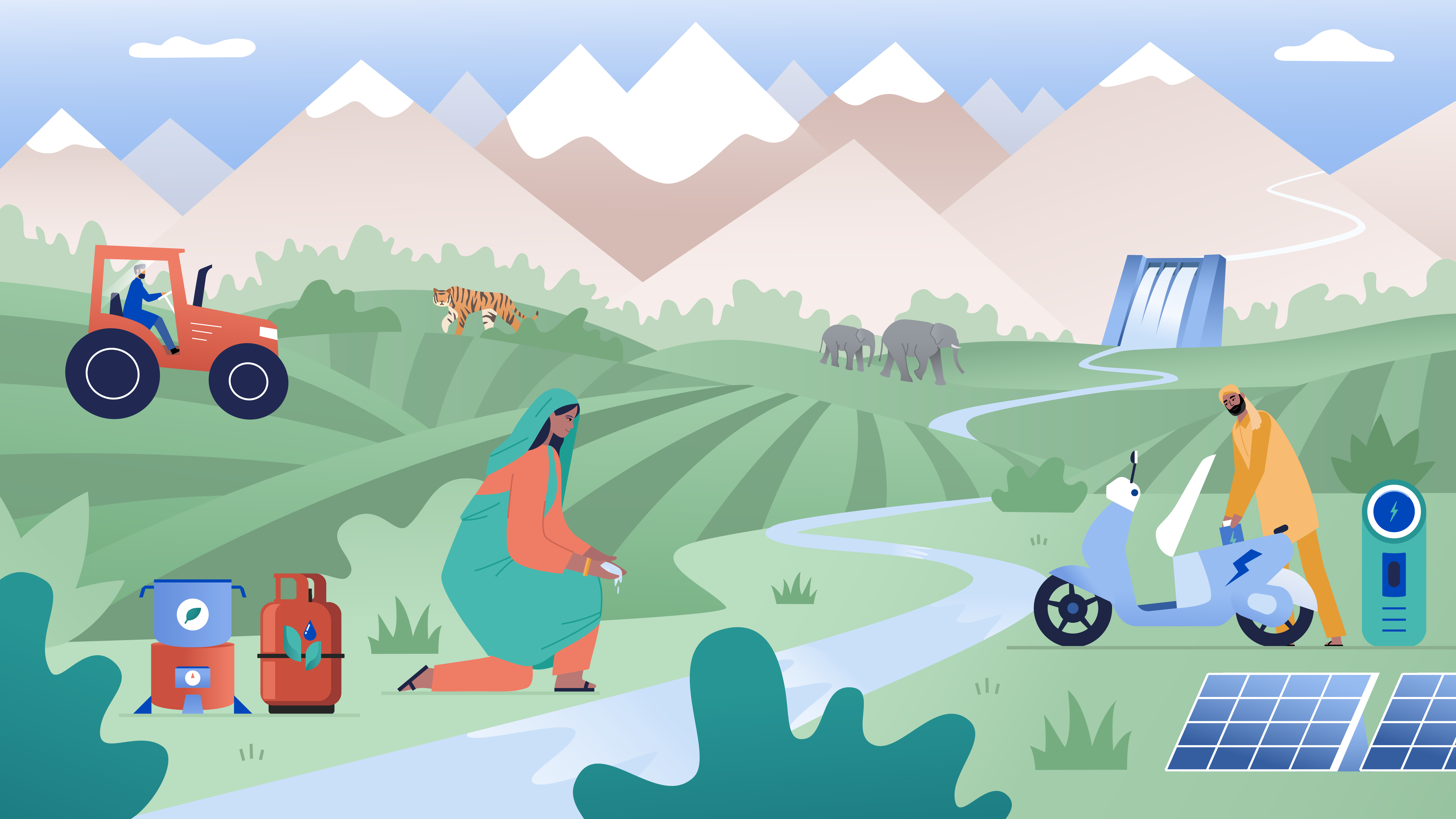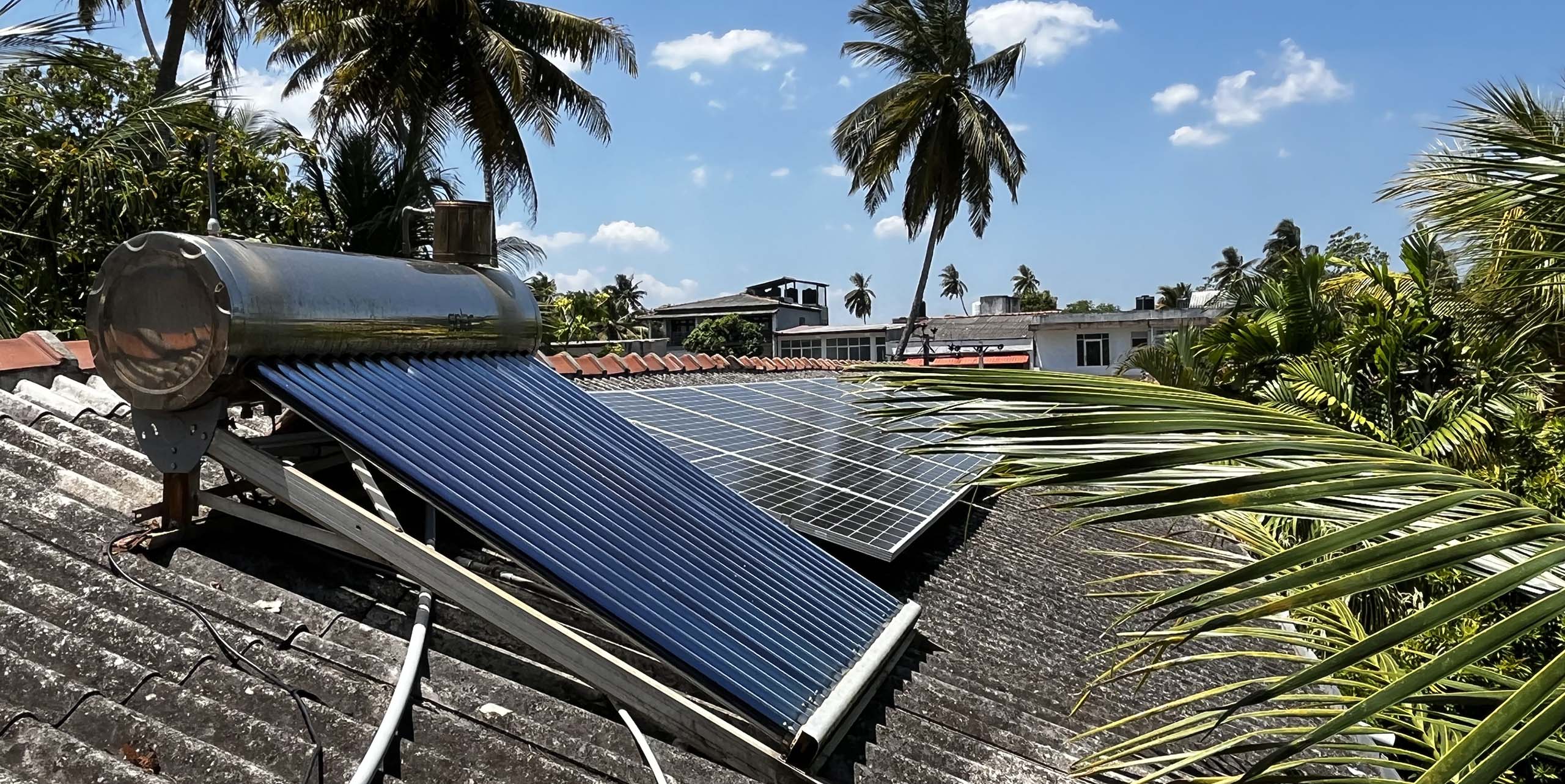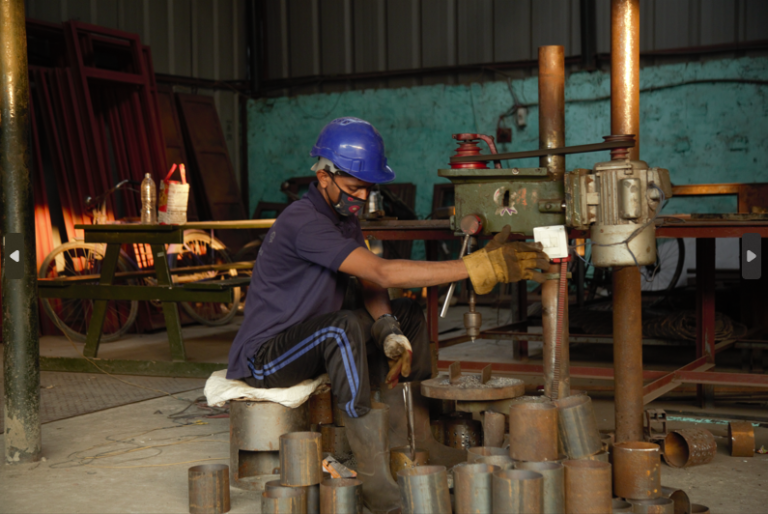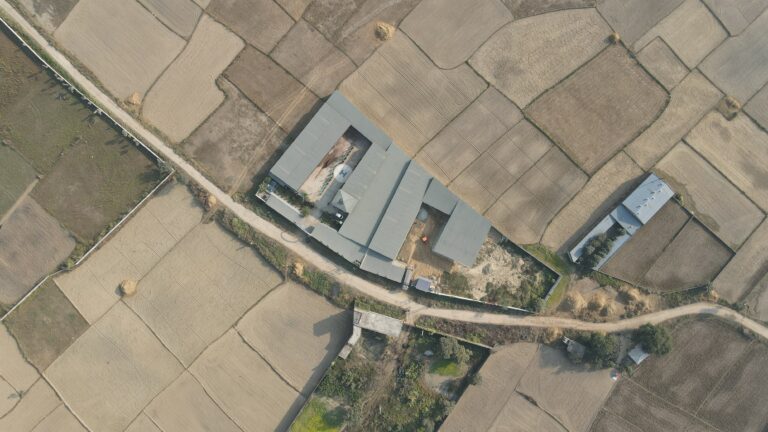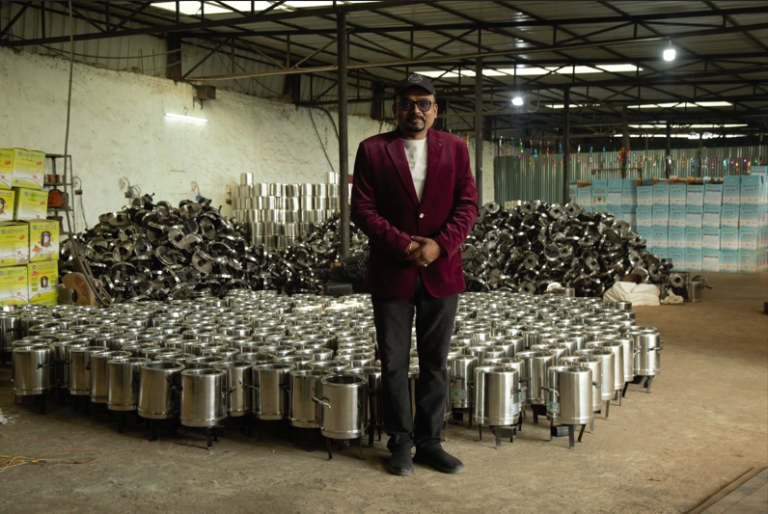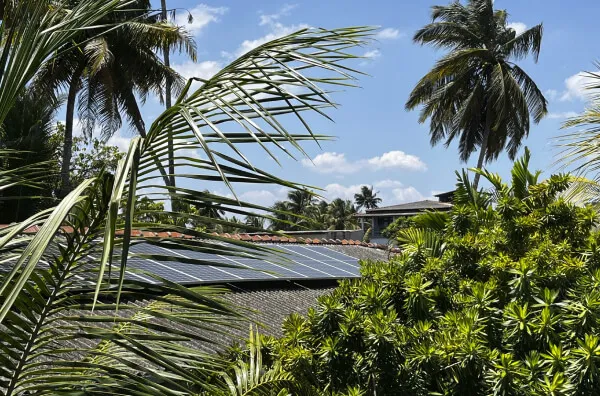PFAN IN SOUTH ASIA 2016-2023
- 1.4 Total investment leveraged (USD billion)
- 46 Total projects which mobilised finance
- 413.27 Clean energy capacity added (MW)
- 166 Projects provided PFAN support
- 820 000 Potential CO2eq reduced per annum (tonnes)
Market developments and PFAN’s response 2016-2023
The South Asia region of Bangladesh, India, Nepal and Sri Lanka has seen different market trends throughout each of the countries, relating to four key areas – access to electricity, access to finance, presence of partnerships and networks, and policy evolution.
With a significant increase in hydropower projects in Nepal in the last decade, the country aims to become self-reliant by 2026, no longer dependent on India for electricity imports. Although changing political discourse has led to challenges in attracting investments, a recently signed Memorandum of Understanding between the Asian Development Bank and the World Bank to support hydro expansion will pave the way for investment.[1] The country’s hydropower trends are reflected in PFAN’s pipeline, with 19 projects supported in Nepal since 2019.
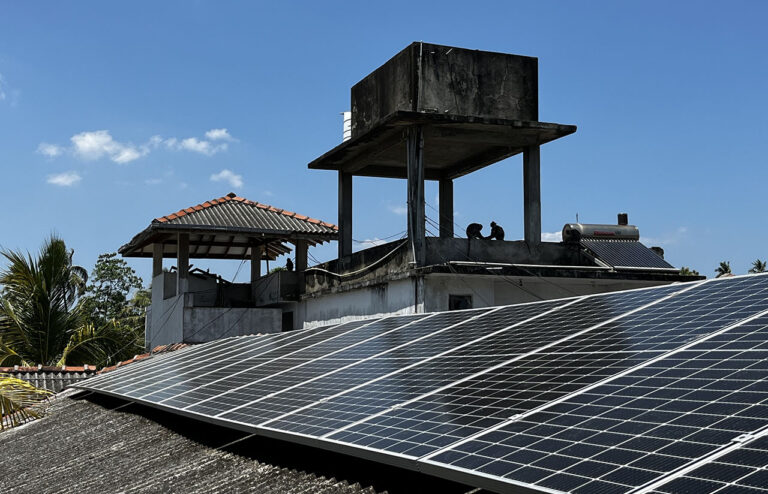
Sri Lanka is fully grid-connected; however, having suffered political and economic upheaval in 2020/21, the country has faced a severe power crisis with regular power outages and a lack of financing to solve the issue. As the capacity of thermal power plants decreases, there is a growing need for renewable energy, which has sparked interest in the rooftop solar space and the possibility of foreign exports. However, political risks have led to a lack of investment. This has not deterred PFAN from the market, as we have continued to support projects in the country, helping companies develop their business models and navigate the changing economic and financial circumstances throughout the past decade.
Bangladesh is also steering for an increase in clean energy sources – aiming for the clean energy sector to be at 40% by 2041, which requires an annual investment of 1.7 billion.[2] Over the past years, new avenues have been explored, with novel financial structures for small-scale investments, larger projects and the growth of rooftop solar players. With a new finance guarantee scheme under discussion, there is likely to be a resurgence of requirements for project preparation and investment facilitation support services, especially for debt transactions, as well as an overall increased funding requirement.
The landscape in India has changed drastically over the last decade, with almost 100% of the population now having access to electricity,[3] leading to a changing discourse of “quality of electricity” rather than “connectivity”. India is transitioning from a pure coal-based to a renewable energy-powered economy, setting targets to install 500 gigawatts of renewable energy by 2030 to ensure that 50% of the country’s energy supply is renewable.[1] PFAN has supported this transition since 2017 with a portfolio of almost 100 projects in the country in various sectors, from biomass to solar.
Overall, the region exemplifies the global trend of electrifying vehicle fleets, with several E-mobility projects receiving PFAN support over the past decade. Furthermore, the transport sector and clean-cooking initiatives have been looking towards carbon finance as an additional funding source to typical revenue streams in recent years.
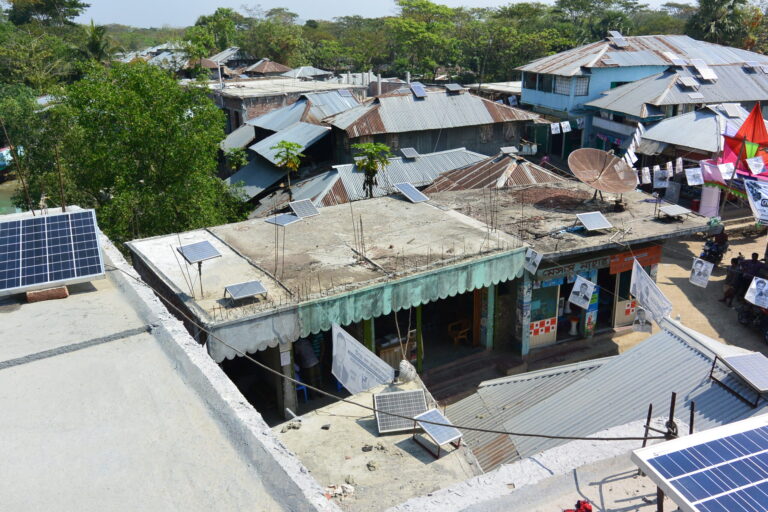
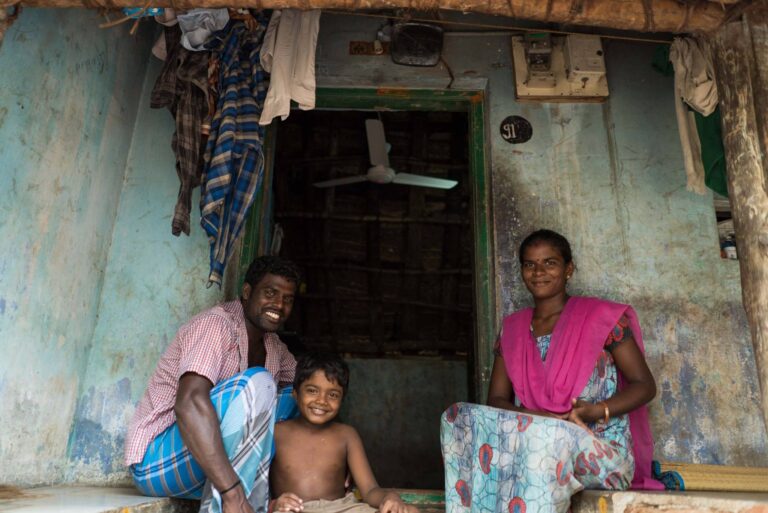
The region has seen an increasing focus on renewable energy, climate mitigation and adaptation over the past years, which is opening new fields of opportunity for PFAN. As South Asia calls for trillions of US dollars to transition to renewable energy, it creates a space for PFAN to leverage domestic and foreign investments into vastly growing renewable energy projects.
More recently, the South Asia market, especially but not limited to India, has proved an important testing ground for PFAN to explore new approaches and develop new financial structures, going beyond conventional renewable energy projects and business models (e.g. wind and solar generation). We have seen the pioneering of solar C&I and utility (OPEX) model distributed generation approaches, development of commercial scale bio-energy models, mesh grids and flash grids, cooling, water treatment and supply, waste treatment and recycling. Moreover, with countries such as Bangladesh, Nepal and Sri Lanka lacking mature equity markets to support climate tech development, PFAN has had a role in supporting financial institutions with the co-creation of clean energy funds, green bond issues and credit lines for SME end-users and micro-finance institutions to improve access to clean energy solutions and help meet the Nationally Determined Contributions.
PFAN’s activities and highlights
In the initial years, the PFAN portfolio focused on generating energy and electricity from renewable energy sources. However, the changing policy and funding ecosystem has helped to expand our portfolio to include adaptation, electric mobility and circular economy projects in South Asia under the UNIDO/REEEP hosting structure.
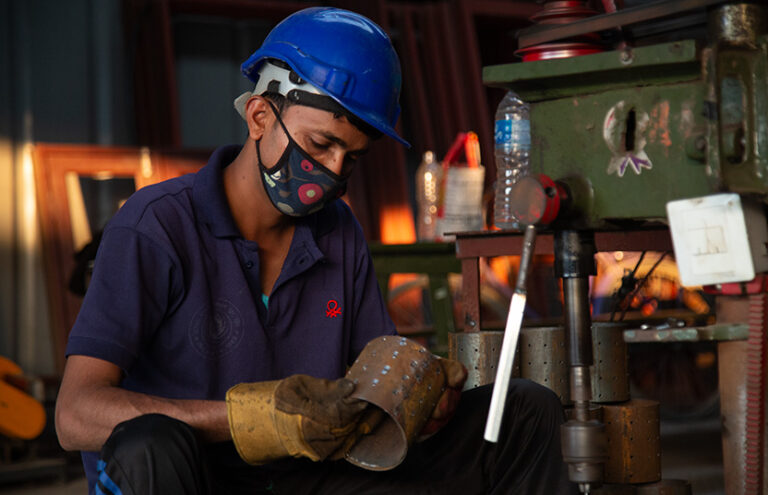
Building resilience is key to ensuring development and attracting investments across Nepal, Sri Lanka and Bangladesh.
The harsh terrains and the stretches of coastal areas have made it imperative for these countries to focus on adaptation efforts while trying to mitigate the damage already caused. Funding for adaptation has been challenging, creating the need for alternate funding mechanisms for climate change SMEs.
Given these challenges in developing a clean energy ecosystem, our focus has moved towards offering support to adaptation projects – since 2017, PFAN has supported 20 climate adaptation projects in the region and has mobilised approximately USD 54 million.
As seen through PFAN’s support to companies such as New Leaf Dynamics, which is enhancing cold chain markets in India, Radix Lifespaces, generating bio-compressed natural gas from organic waste, and Swajal Water, whose innovative solar-powered water purification and distribution machines are found all across India, we have accelerated investment in a variety of innovative ideas tackling the challenges of climate change.
As a result, PFAN has been focusing on building partnerships with the local private and public lending institutions to drive regional investments in these various sectors, which has led to a dynamic diversification of our development pipeline and the need to constantly expand and enhance the skill sets and experience base of our advisor network.
Since hosting PFAN’s first investor forum in Asia in 2009, the region has been a key player in both attending and organising events to support project developers in meeting their investment needs. For example, India, one of PFAN’s most active countries, was a crucial player in leveraging the finance raised over the years. A strong network in the country helped PFAN partner with the Confederation of Indian Industries to develop a series of webinars to reach out to climate mitigation and adaptation businesses.

Despite the challenges encountered as a result of Covid-19, the Asia region continued to grow with the inception of the Pakistan Private Sector Energy Project (PPSE), a PFAN sub-programme, and an increasing number of projects interested in PFAN – leading Southeast Asia and South Asia to split into two regions. In 2021, Pamli Deka became PFAN’s first female Regional Coordinator and has since strengthened the network of clean energy and adaptation projects while reaching out to new stakeholders to develop partnerships in South Asia.
With our advisors, who bring strong technical experience from the industry and experience in sector-specific fundraising, PFAN ensures that entrepreneurs receive support based on their projects’ specific requirements and are guided throughout their business development process. For example, PFAN Advisor Abhay Nalawade has been working with Indian company Atomberg Technologies, which develops energy and cost-efficient ceiling fans and other home appliances since its early days and assisted them in closing multiple funding rounds. Abhay continues to add value by providing advice on new market segments and products for continuing their business growth, along with scouting for fresh investors. To date, Atomberg Technologies has raised USD 127 million in eight funding rounds, the most recent in 2023.

With more than 17 years in the energy and development space, Pamli Deka has worked with global organisations, leading diverse multicultural teams, developing funding proposals, co-authoring reports, liaising with investors and donors, managing experts and supporting entrepreneurs with the final objective of creating sustainable long-term impact which leads to development through innovation.
She has been working with a team of Country Coordinators and PFAN Advisors in South Asia as the Regional Coordinator for PFAN South Asia since 2021.
Pamli Deka shares insights into PFAN’s impact in South Asia
